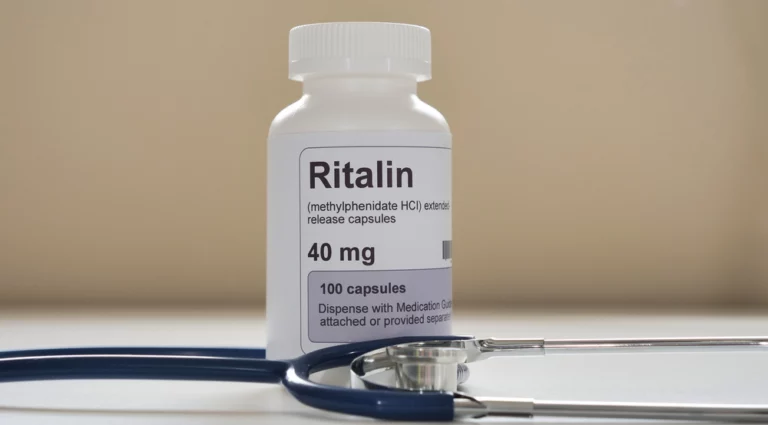In recent years, ZaZa pills have gained attention for their widespread availability and claims of providing various benefits, from stress relief to pain management. However, beneath the allure of these over-the-counter supplements lies a complex web of potential risks and consequences. Due to the availability of these pills, it’s essential to understand these consequences before taking any Zaza pills.
In this guide, we aim to provide information on the addictive nature of Zaza pills, the side effects an individual may encounter, and the withdrawal process.

What are ZaZa Pills?
Zaza pills, also known by their official name tianeptine or by its nickname ‘gas station heroin,’ is a dangerous synthetic opioid that finds its way onto the shelves of certain gas stations and convenience stores. Marketed as a legal high, dietary supplement, a potential substitute for prescription pain relievers, or a synthetic opioid alternative, this substance can be obtained over the counter in various forms, such as tablets, capsules, and powder. Specifically, Zaza Red pills, a brand-name version of tianeptine, are offered in capsule form.
Tianeptine boasts potency levels up to eight times greater than morphine, rendering it exceptionally potent and, in turn, hazardous. This gas station heroin triggers opioid-like effects within the body, a phenomenon associated with a multitude of hazardous side effects, along with the risks of addiction and overdose. Consequently, many states have responded to this threat by enacting laws prohibiting the sale of Zaza pills.
Side Effects of ZaZa Pills
Because Zaza pills can be marketed as a dietary or herbal supplement, many individuals may ignore or understand the potential side effects that can come from taking the drug. These side effects can be similar to the side effects of opioid use, as tianeptine affects the same opioid receptors. These side effects of tianeptine may include the following:
- Nausea or vomiting
- Stomach cramps
- Dizziness
- Extreme fatigue
- Liver damage
Can You Overdose on ZaZa Pills?
Zaza pills, particularly those containing kratom, pose a significant risk of overdose if used irresponsibly or excessively. Overdosing on Zaza pills can have severe consequences, including life-threatening complications. Some of the biggest dangers of overdosing on Zaza pills include the following:
- High Potency: Zaza pills can be deceptively potent with varying ingredients and potencies. Kratom, in particular, is known to have a narrow dosage range between desired effects and potential toxicity. Individuals may take more than they can safely tolerate, believing it will enhance the desired effects.
- Respiratory Depression: One of the most critical concerns with overdosing on Zaza pills is respiratory depression. High doses of kratom, in particular, can slow down breathing to dangerous levels, potentially leading to oxygen deprivation and unconsciousness.
- Cardiovascular Effects: Overdosing on Zaza pills can also lead to cardiovascular complications, including a rapid heartbeat, high blood pressure, and irregular heart rhythms. These effects can be especially risky for individuals with pre-existing heart conditions.
- Central Nervous System Effects: High doses of Zaza pills can cause central nervous system depression, leading to symptoms such as extreme sedation, confusion, impaired coordination, and even loss of consciousness.
- Seizures: In some cases, Zaza pills, especially when abused or consumed in excessive quantities, have been associated with seizures. Seizures are a serious medical emergency that requires immediate attention.
- Risk of Fatal Overdose: While fatal overdoses directly attributed to Zaza pills are less common than with some other substances, they are still possible, particularly when the pills contain undisclosed or unregulated ingredients.
Common Withdrawal Symptoms of ZaZa Pills
While individuals can overdose by taking too many Zaza pills, it’s essential to understand if they will experience withdrawal symptoms when abruptly stopping or reducing use. Zaza pills, particularly those containing kratom or other potentially habit-forming substances, have the potential to lead to dependence and withdrawal symptoms. Managing these withdrawal symptoms is similar to addressing opioid withdrawal, as many of the symptoms are similar. These withdrawal symptoms may include:
- Anxiety
- Irritability
- Sweating
- Muscle pain
- Insomnia
- Depression
- Intense cravings
- Panic attacks
- Loss of appetite

Why Should You Be Concerned About Tianeptine?
Tianeptine poses several significant concerns related to its usage and safety. First, it is frequently used without medical oversight or guidance, which increases the risk of self-prescription and misuse, potentially resulting in negative health consequences. Secondly, the substance carries a notable risk of dependence and addiction, particularly when taken improperly or in high doses. Individuals often develop a tolerance, requiring higher quantities to attain the desired effects, ultimately leading to a cycle of escalating usage and withdrawal symptoms upon stopping use.
The availability of tianeptine in an unregulated market adds to the concerns surrounding its use. The lack of oversight makes it challenging to ensure product quality and safety, potentially leading to inconsistencies in product purity. Additionally, the varying legal status of tianeptine in different regions can create legal complications for individuals and sellers, including the risk of facing criminal charges. As tianeptine is legally sold in various countries, including Europe and Asia, as a tricyclic antidepressant drug most commonly used for treating major depressive disorder, many individuals may believe it is safe for consumption.
Opioid Addiction Treatment Available in Knoxville, TN
Individuals taking Zaza pills may not be aware of their opioid-like side effects, resulting in a tianeptine addiction. This addiction acts similarly to an opioid addiction, requiring individuals to receive addiction treatment services to fully recover. These services typically occur within an addiction treatment center under the supervision of a medical professional.
At Knoxville Recovery Center, located in Knoxville, TN, we provide holistic, individualized, and evidence-based addiction treatment services for all substance use disorders, including tianeptine addiction. Our services include medical detox, aftercare support services, and a therapeutic nutritional program.
If you or a loved one are struggling with substance abuse and would like to begin the recovery process, contact us today to learn more about our addiction treatment programs.








